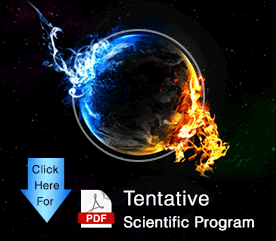Hammed Taiwo Babatunde
University of Ibadan, Nigeria
Title: Energy and resource recovery from litters generated in a community for reducing green house gas emission and mitigating climate change effects
Biography
Biography: Hammed Taiwo Babatunde
Abstract
Global warming has become a matter of public concern in the last few years and quantity of the greenhouse gas produced by human activities has been predominating over that of natural origin. This study adopts a quasi-experimental design, comprising mixed method of data collection such as semi-structured questionnaire and Intergovernmental Panel on Climate Change (IPCC) model for calculating greenhouse gas generation potentials of various solid waste components and management practices of litters generated at Kube Atenda community in Ibadan, Oyo State. A systematic random sampling was used to select sixty (60) households and respondents (household heads) for the survey and training on waste to wealth and energy recovery from waste. The questionnaire was administered in order to assess respondents’ levels of knowledge, attitude and practices of waste management practices through recovery, reduction, reuse and recycling (4Rs) before and after the training. Greenhouse gases (GHGs) at the study areas was measured with the use of calibrated digital meters including P-Sense Plus CO2, CH4 and NO2 AZ-7755 meter. Litter management practices and GHG emission potential would be estimated using the greenhouse gas conversion and correction factors developed by U.S EPA for Waste Reduction Model (WARM) and IPCC, 2006 guidelines. The findings from this study would be of great benefit to the public and it is expected that, at the end of this study, there would be behavioral change of the community members towards litter management practices that promote climate change mitigation and adaptation through waste reduction, reuse, resource recovery, green growth, clean environment, poverty reduction, improved health and self-esteem. With the intervention, the community would have become a role model in the country and the transformation would surely arouse the interest of policy makers across the world to think locally and act globally.

